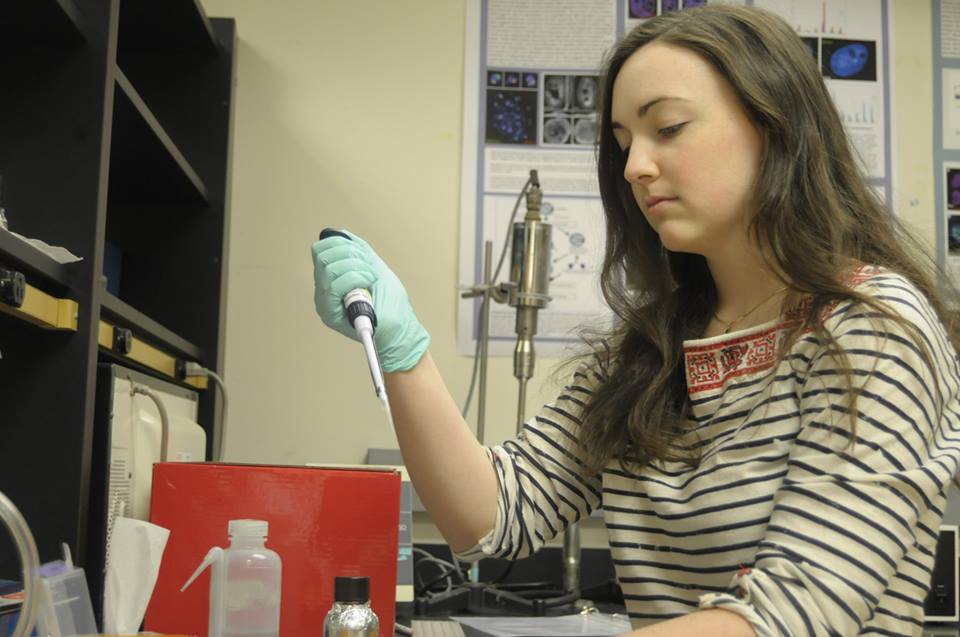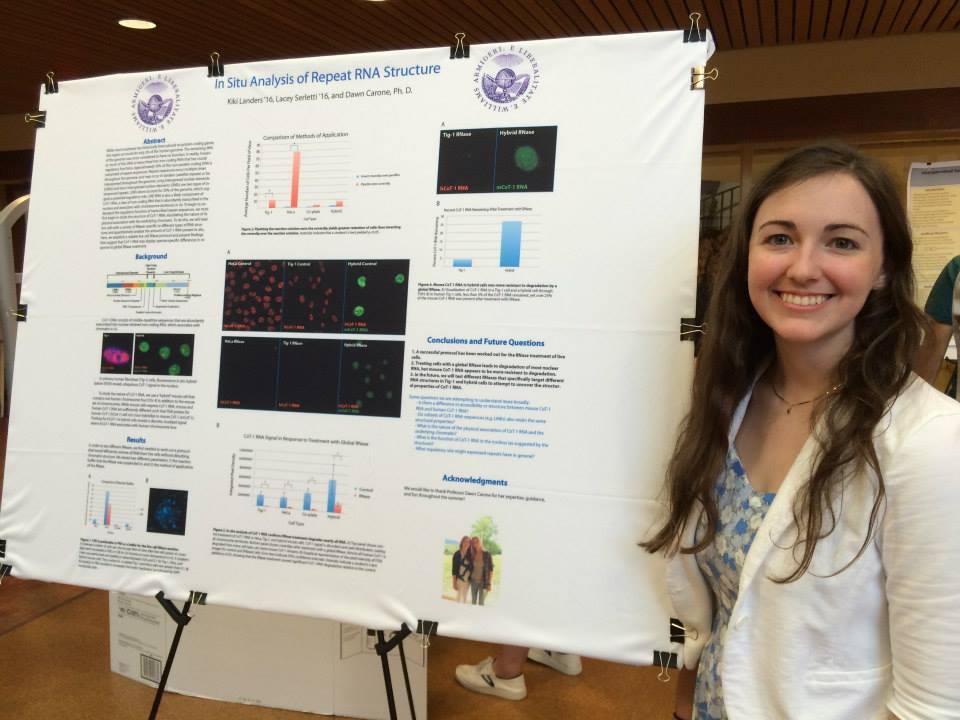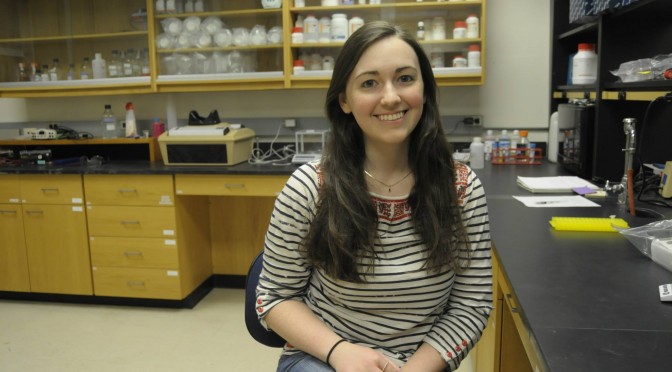By Elizabeth Jacobsen ’16
Writing a thesis is a lot like being in a relationship. It requires time, dedication, and a spark that makes the effort worthwhile. Kiki Landers is working on her biology thesis with Dawn Carone, studying RNA and cancer. She is a bright, friendly people-person, yet she has devoted most of her year to studying microscopic cells in a windowless lab. I appropriated a few moments of her all-too-rare free time to ask her about the driving forces behind her thesis work. Here she shares the story of how she developed a passion for cancer research that will carry on in her post-graduate career and how she changed in the process—in short, the story of how she fell in love with her research.
Very broadly speaking, I work with RNA and cancer. I’m fascinated by cancer as a topic of study. The therapies we have now are not sufficient in my mind at all. I just think there’s so much more we need to learn. Getting to ask questions about that—even as an undergrad who has no further scientific training—is a really special opportunity for me.
Much more specifically, I work with repeat RNA sequences. DNA has our genetic material, and proteins perform the functions of the cell. To get from DNA to protein, we have to go through RNA, like an intermediate. Now we know RNA actually has its own functions, too, so sometimes we can just go from DNA and transcribe it into RNA, and that RNA will have a function. In cancer, lots of things become misregulated, and sometimes this RNA will do things it’s not supposed to do.
What Dawn had previously discovered in her postdoc lab was this remarkable finding that satellite II DNA is expressed as RNA in many types of cancer cells. It forms large bodies; so if we visualize them under the microscope, you see these large circles—bodies of satellite II RNA that forms next to the DNA. You see none in normal human cells, and it’s overexpressed by nearly two hundred-fold in cancer cells. It’s really shocking.

Our lab asked the question, what is it doing? And the second question following up from that is, how is it mistakenly regulated in cancer to help the cancer progress? Those are really broad questions, but to do that we have to take a much more targeted approach, one step at a time.
My first lab at Williams was a different lab, and I absolutely loved it. That lab was full for the school year, but I knew I didn’t want to stop doing research, because that’s who I am!
Dawn was new at the school, and I set up a meeting with her to talk about her research because it sounded interesting. We sat down and started talking about it, and we talked for like an hour, and then she took me to the lab and presented her poster to me and showed me the lab—and I just had one of those moments of realization where I just absolutely knew it was what I had to do. I asked her right then if she had room in her lab. She was like, “Yeah, I do have one spot left,” and so I was like, “I would love to have the opportunity to work in your lab!” And she said okay, and the rest is history.

I think more like a scientist now. I think that I know so much more now, not just even about this project but about the field in general, that I never could have imagined. I was really interested in Dawn’s work and her techniques and RNA, but I had no idea that I would be so interested in cancer, and since then it has become an absolute passion of mine.
I would have to say my favorite part is the people, like Dawn and Lacey (Serletti ’16). I’m a people person, and that is the most important thing in my life, so of course that’s the best part for me, because I’ve gotten so close to both of them.
I could not imagine my life without this project. Well, it has consumed so much of my life; I basically work full time in the lab. But I love it!
